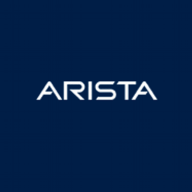

Trend Micro Deep Discovery and Arista NDR are advanced threat detection products. Trend Micro Deep Discovery has an edge in pricing and customer support, whereas Arista NDR is noted for its robust feature set, providing more value for those who prioritize capabilities.
Features: Arista NDR offers advanced machine learning algorithms, comprehensive network traffic analysis, and excellent IoT device monitoring. Trend Micro Deep Discovery provides extensive malware detection, significant endpoint integration, and robust sandbox capabilities.
Room for Improvement: Arista NDR could benefit from enhanced endpoint detection and easier integration with other security solutions, and a more intuitive setup process. Trend Micro Deep Discovery can improve in deployment complexity, broader network traffic insights, and in updating malware signatures faster.
Ease of Deployment and Customer Service: Arista NDR is recognized for its easy deployment and responsive customer service. In contrast, Trend Micro Deep Discovery, while offering comprehensive customer support, involves a more complex deployment process.
Pricing and ROI: Trend Micro Deep Discovery is more cost-effective upfront, providing a solid ROI for moderate deployments. Arista NDR, despite higher initial costs, delivers compelling ROI through its advanced features, becoming attractive to businesses needing top-tier detection capabilities.
| Product | Market Share (%) |
|---|---|
| Trend Micro Deep Discovery | 3.3% |
| Arista NDR | 3.9% |
| Other | 92.8% |

| Company Size | Count |
|---|---|
| Small Business | 5 |
| Midsize Enterprise | 2 |
| Large Enterprise | 7 |
| Company Size | Count |
|---|---|
| Small Business | 15 |
| Midsize Enterprise | 6 |
| Large Enterprise | 9 |
Arista NDR (formerly Awake Security) is the only advanced network detection and response company that delivers answers, not alerts. By combining artificial intelligence with human expertise, Arista NDR hunts for both insider and external attacker behaviors, while providing autonomous triage and response with full forensics across traditional, IoT, and cloud networks. Arista NDR delivers continuous diagnostics for the entire enterprise threat landscape, processes countless network data points, senses abnormalities or threats, and reacts if necessary—all in a matter of seconds. The Arista NDP platform stands out from traditional security because it is designed to mimic the human brain. It recognizes malicious intent and learns over time, giving defenders greater visibility and insight into what threats exist and how to respond to them.
The Advent of Advanced Network Detection and Response & Why it Matters
Trend Micro Deep Discovery provides an intuitive interface and extensive threat visibility. It enhances detection with sandboxing and custom virtual machine images. Integration with Trend Micro Office Scan and Vision One ensures robust defense and detailed threat analysis.
Trend Micro Deep Discovery is a comprehensive network security tool used for intrusion detection, malware analysis, and zero-day vulnerability sandboxing. It supports various platforms and can be integrated with email and server protection. It's particularly useful for compliance with regulatory requirements through signature-based behavior analysis and virtual patching. Users benefit from easy installation, management, and responsive technical support.
What are the key features of Trend Micro Deep Discovery?Trend Micro Deep Discovery is implemented across sectors requiring stringent security measures, such as finance, healthcare, and government. It's favored for its ability to analyze diverse network traffic and provide exceptional protection against sophisticated threats while ensuring compliance with strict data regulations. Industry reviews highlight its role in safeguarding sensitive information through robust security frameworks and adaptable deployment options.
We monitor all Network Detection and Response (NDR) reviews to prevent fraudulent reviews and keep review quality high. We do not post reviews by company employees or direct competitors. We validate each review for authenticity via cross-reference with LinkedIn, and personal follow-up with the reviewer when necessary.